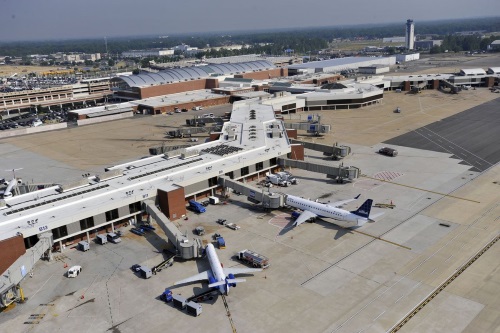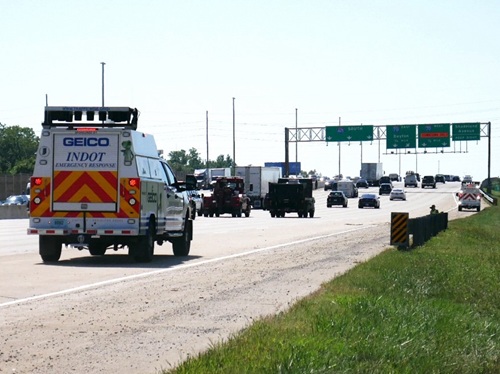The Federal Aviation Administration awarded the first allotment of some $3.18 billion worth of fiscal year 2019 in Airport Improvement Program or AIP funds on June 5; disbursing $840 million among 432 grants for infrastructure projects at 381 airports around the country.
[Above photo by the Richmond International Airport.]
According to a statement, the FAA said those projects include runway reconstruction and rehabilitation, construction of firefighting facilities, and the maintenance of taxiways, aprons, and terminals.

Airports can receive a certain amount of AIP entitlement funding each year based on activity levels and project needs, the agency noted and – if their capital project needs exceed their available entitlement funds – the FAA can supplement those entitlements with discretionary funding.
On top of that, the FAA Reauthorization Act of 2018 signed into law by President Trump on Oct. 3 last year allows AIP funds through fiscal year 2023 to be used to fund the development of certain airport access roads in non-contiguous states and for certain snow removal and safety equipment storage facilities.
In a separate announcement, the U.S. Department of Transportation issued $15 million in grants to two new national University Transportation Centers or UTCs – $7.5 million to the University of South Florida and $7.5 million to Washington State University – to “advance research and education programs” that address critical transportation challenges facing the nation.

The University of South Florida will focus on “Congestion Relief” and Washington State University will focus on “Improving the Durability and Extending the Life of Transportation Infrastructure,” according to Diana Furchtgott-Roth, USDOT’s deputy assistant secretary for research and technology
“These two new University Transportation Centers will help develop answers to two key problems facing drivers in America – congestion and deteriorating infrastructure,” she said in a statement. “Traffic jams and potholes cause daily problems for motorists, wasting their time and causing damage to vehicles. These universities are taking practical approaches to these problems that will result in solutions that America needs now.”
 Nation
Nation


